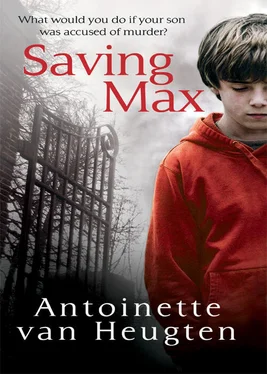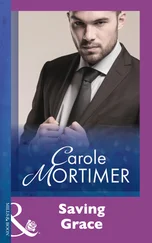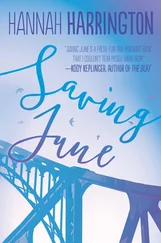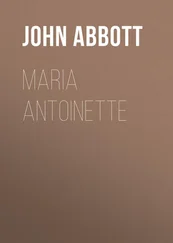ANTOINETTE VAN HEUGTENknows first-hand the struggles and triumphs of living with autism and has always been an advocate for her children in a world where few people understood their disorder. She is an avid follower of the Autism Society of America, Talk Autism, Autism Speaks, the National Autism Association and Moms Fighting Autism and has worked with parents who have recently received a diagnosis of autism for their children.
Antoinette received both her undergraduate degree and law degree from the University of Texas in Austin, Texas. During her fifteen-year career as a trial lawyer, she practised all over the world, in locations such as Scandinavia, Germany and the Netherlands to Houston, her home town.
Antoinette resides in Fredericksburg, Texas, with her husband, a former prominent oil and gas lawyer.
Saving
Max
Antoinette
Van Heugten

www.mirabooks.co.uk
For Bill,
who has made all of my dreams come true.
I would like to thank all of my friends and family who have steadfastly supported and encouraged me. They have read my manuscript ad nauseam—and still love me. For my brilliant agent, Al Zuckerman, for taking a chance on a new writer and for his insistence on excellence; for Linda McFall, for loving the book and making this happen. For Glenn Cambor, who first told me to write and then kept my head on straight while I did. For Beverly Swerling, my reader, without whom this novel would still be in a box under my desk. My heartfelt thanks to Jim and Jeanine Barr, who provided their criminal law expertise; Wayman Allen, for his police and private investigator savvy; Dawn Weightman, for her steadfast devotion and love; for Lane, Tom, Kelly and Cynthia—who made me laugh every day. A special thanks to my three sons—Brendan, Sam and Jack—who have inspired me and given me the privilege of being their mother. And for Bill—my editor, my love, my life.
The precursor of the mirror is the mother’s face.
D.W. WINNICOTT, PLAYING AND REALITY, 1971
Anything that is deliberate, twisted, created as a trap and as a mystery must be discovered at last; everything that is done naturally remains mysterious.
G.K.CHESTERTON, ROBERT BROWNING, 1903
PART ONE
She walks down a deserted hallway of the psychiatric hospital, her heels tapping a short staccato on the disinfected floor. She pauses; pushes open a door; and steps inside. The room is red, all red, with dark, sick spatters of blood. They stab and soar at the ceiling and walls, pool on the floor. She claps both hands to her mouth, trying to stifle the scream that tears at her throat. Her eyes are pulled to the body on the bed. The boy lies gaping at the ceiling, his eyes blue ice. Her fingers, slick with his blood, find no pulse. She scrambles for the nurse’s button—and freezes.
There, on the floor next to the bed, lies a huddled form—a boy not so different from the corpse above him. His face and hands are smeared with blackened blood, but this time her frantic search for a pulse is rewarded with a faint throb. It is then that she sees it.
Clutched in his hand is a long, spiked object, covered in the slime and blood that lacerates the room. Grasped in that hand, as tightly as a noose, is the murder weapon.
Danielle falls gratefully into the leather chair in Dr. Leonard’s waiting room. She has just raced from her law firm’s conference room, where she spent the entire morning with a priggish Brit who couldn’t imagine that his business dealings across the pond could possibly have subjected him to the indignities of a New York lawsuit. Max, her son, sits in his customary place in the corner of the psychiatrist’s waiting room—as far away from her as possible. He is hunched over his new iPhone, thumbs punching furiously. It’s as if he’s grown a new appendage, so rarely does she see him without it. At his insistence, Danielle also has an identical one in her purse. The faintest shadow of a moustache stains his upper lip, his handsome face marred by a cruel, silver piercing on his eyebrow. His scowl is that of an adult, not a child. He seems to feel her stare. He looks up and then averts his lovely, tenebrous eyes.
She thinks of all the doctors, the myriad of medications, the countless dead ends, and the dark, seemingly irreversible changes in Max. Yet somehow the ghost of her boy wraps his thin, tanned arms around her neck—his mouth cinnamon-sweet with Red Hots—and plants a sticky kiss on her cheek. He rests there a moment, his small body breathing rapidly, his heart her metronome. She shakes her head. To her, there is still only one Max. And in the center of this boy lies the tenderest, sweetest middle—her baby, the part she can never give up.
Her eyes return to the present Max. He’s a teenager, she tells herself. Even as the hopeful thought flits across her mind, she knows she is lying to herself. Max has Asperger’s Syndrome, high-functioning autism. Although very bright, he is clueless about getting along with people. This has caused him anguish and heartache all his life.
When he was very young, Max discovered computers. His teachers were stunned at his aptitude. Now sixteen, Danielle still has no idea of the extent of Max’s abilities, but she knows that he is a virtual genius—a true savant. While this initially made him fascinating to his peers, none of them could possibly maintain interest in the minutiae Max droned on about. People with Asperger’s often wax rhapsodic about their specific obsessions—whether or not the listener is even vaguely interested in the topic. Max’s quirky behavior and learning disabilities have made him the object of further ridicule. His response has been to act out or retaliate, although lately it seems that he has just withdrawn further into himself, cinching thicker and tighter coils around his heart.
Sonya, his first real girlfriend, broke up with him a few months ago. Max was devastated. He finally had a relationship—like everybody else—and she dumped him in front of all his classmates. Max became so depressed that he refused to go to school; cut off contact with the few friends he had; and started using drugs. The latter she discovered when she walked into his room unannounced to find Max staring at her coolly—a joint in his hand; a blue, redolent cloud over his head; and a rainbow assortment of pills scattered carelessly on his desk. She didn’t say a word, but waited until he took a shower a few hours later and then confiscated the bag of dope and every pill she could find. That afternoon she dragged him—cursing and screaming—to Dr. Leonard’s office. The visits seemed to help. At least he had gone back to school and, in an odd way, seemed happier. He was tender and loving toward Danielle—a young Max, eager to please. As far as the drugs went, her secret forays into his room turned up nothing. That wasn’t to say, of course, that he hadn’t simply moved them to school or a friend’s house.
But, she thinks ruefully, recent events pale in comparison to what brings them here today. Yesterday after Max left for school and she performed her daily search-and-seizure reconnaissance, she discovered a soft, leather-bound journal stuffed under his bed. Guiltily, she pried open the metal clasp with a paring knife. The first page so frightened her that she fell into a chair, hands shaking. Twenty pages of his boyish scrawl detailed a plan so intricate, so terrifying, that she only noticed her ragged breathing and stifled sobs when she looked around the room and wondered where the sounds were coming from. Did the blame lie with her? Could she have done something differently? Better? The old shame and humiliation filled her.
Читать дальше













